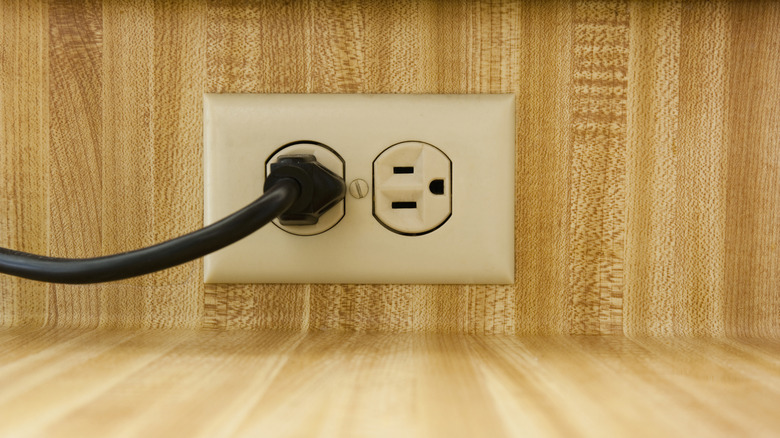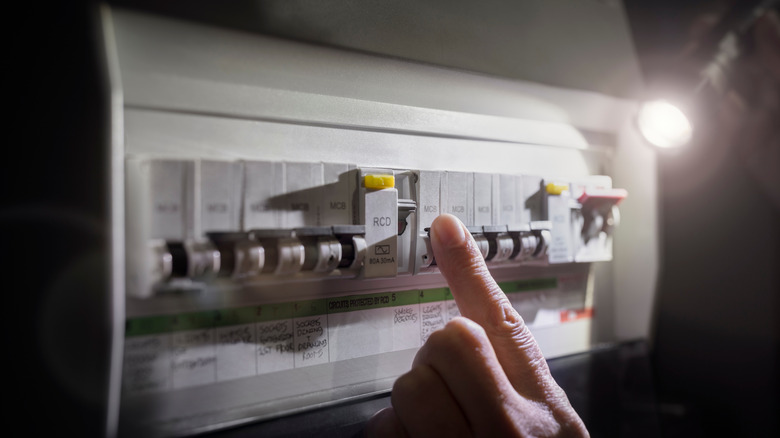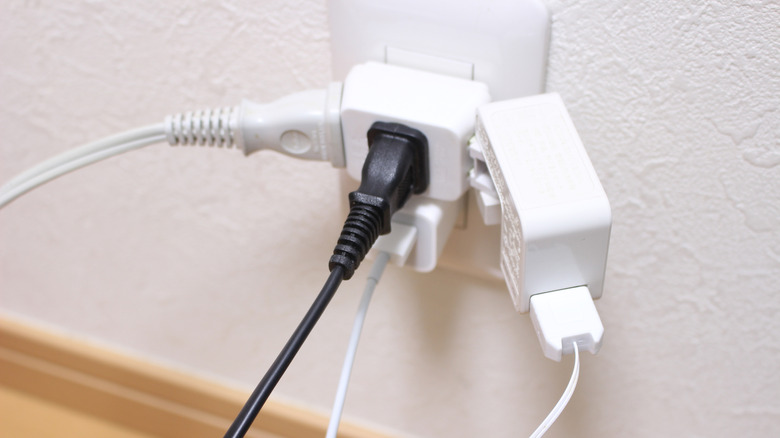Why Do Outlets Stop Working? Here's What We Know
Charging your phone is an important part of getting ready for the day, like grabbing your keys or making sure you have your wallet. You need that battery life for directions, messages, and everything in between, after all. But imagine the feeling when you're about to head out only to discover that your phone's battery level has remained unchanged. You try another outlet and while it works fine, there is no more time to charge.
This shows that a non-working electrical outlet can throw off your entire routine. For example, it forces you to reroute appliances and stretch extension cords across rooms, among other things. So, why do outlets stop working? The reason for this issue can be a tripped breaker, loose wiring, or a GFCI outlet that needs a quick reset. But the cause can be more serious sometimes, like damaged or worn-out circuits.
Ignoring a dead outlet isn't just inconvenient — it is also unsafe and could lead to bigger electrical-related problems. These can include overloaded circuits, hidden wiring damage that worsens over time, and even potential fire hazards due to overheating or faulty connections. So, the sooner you figure out what's going on with your electrical outlet, the better. But it is also equally important to know when to replace an electrical outlet yourself and when to call an electrician instead.
What causes outlets to stop working (and how to avoid it)?
When it comes to everything new homeowners need to know about circuit breakers, it's important to keep in mind that a tripped one can cause an outlet to stop working. Your electrical panel is like a safety net; it shuts off power to parts of your house if there's too much demand. Take a look at your breaker panel if an outlet is acting up, and see if any switches have flipped off. Just flip them back on and see if the outlet works again. If it trips right away, that could mean your circuit's overloaded. Try not to plug in too many heavy-duty devices at once to avoid this.
There might also be an issue with your ground fault circuit interrupter (GFCI) outlets. These are typically found in kitchens and bathrooms and are designed to shut off when they detect moisture or an electrical imbalance. Immediately check for a nearby GFCI that might have tripped if one outlet stops working, and press the reset button to see if that restores power.
Another common reason is loose wirings or worn-out outlets. Wires can loosen over time due to temperature changes, movements, or just simple wear and tear. This usually happens in older homes but can occur anywhere. It's best to call an electrician than attempt to DIY these issues. This is also the best route if you suspect a deeper electrical issue, like damaged wiring within your walls or even corrosion. If you notice flickering lights, weird sounds, or even a burning smell, immediately call a professional (just know some tips for saving money on an electrician).
Keeping your outlets in good shape
Giving attention to your electrical outlets can go a long way in preventing issues. Make sure they're free from debris and that you don't put things that don't belong inside. It's also good to be more mindful of devices you plug in. You should avoid overloading circuits with power-hungry appliances, and unplug devices when not in use to reduce strain on your electrical system.
You need to regularly inspect your outlets for signs of damage. Replace them once you notice cracks, discoloration, or if your plugs start coming loose. Worn-out outlets can lead to poor connections and even electrical arcing — or sparks — which poses a fire risk. This also applies to GFCI outlets. Test them from time to time to check if they're functioning correctly. If not, just buy a new one.
Consider also having an electrician inspect your wiring if you live in an older home. Outdated systems, after all, weren't built to handle modern electrical loads, so upgrading to newer outlets and circuit breakers can help. Keep in mind that frequently tripped breakers or dead outlets might be a sign that your system is struggling to keep up. Knowing and addressing small issues early can prevent major electrical failures and can save you from bigger headaches down the road.


